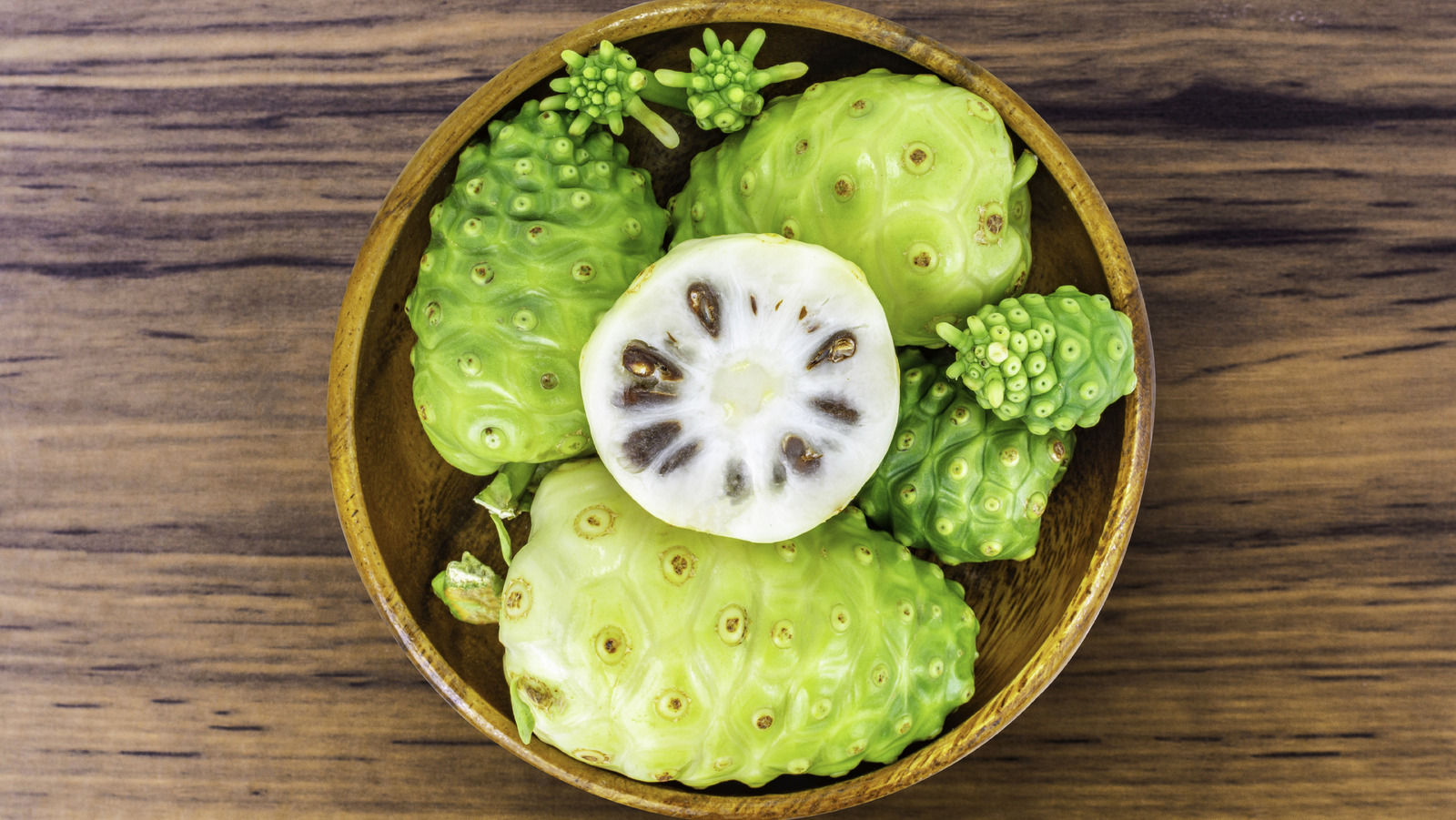What Is Noni Fruit, And What Does It Taste Like?
Noni has experienced somewhat of a renaissance because of its purported health benefits. According to Healthline, it has been utilized by indigenous Polynesian cultures for over 2,000 years to treat everything from constipation and infections to pain and arthritis inflammation.
Noni juice has been extensively researched, yielding mixed but promising results. It is high in Vitamin C, biotin, and folate, which are essential for immunity, skin health, and more. This fruit has shown particular benefits to those who smoke — its high levels of antioxidants are linked with minimizing oxidative stress, which can lead to several diseases, including heart disease and diabetes.
Clinical trials also found that it reduced the number of cancer-causing chemicals in those who smoke by 45%, according to Healthline. It may also help reduce cholesterol, bolster physical endurance, strengthen the immune system, and manage pain from arthritis.
Despite these promising medicinal qualities, some should avoid noni. Verywell Fit reports that anyone with liver disease should avoid it due to its hepatotoxic, or liver damaging, potential conferred by anthraquinones in the plant. It is also high in potassium which may be dangerous for those with kidney disease.
And finally, it is contraindicated for those on blood thinners, pregnant or nursing mothers, children, and those undergoing chemotherapy or radiation therapy. The bottom line: Though there may be great potential in incorporating noni into your daily routine, check with your medical professional before embarking on any supplementation regimen.
No Byline Policy
Editorial Guidelines
Corrections Policy
Source
